theartsdesk Q&A: Zoë Telford on playing a stressed-out psychiatrist in ITV's 'Malpractice' | reviews, news & interviews
theartsdesk Q&A: Zoë Telford on playing a stressed-out psychiatrist in ITV's 'Malpractice'
theartsdesk Q&A: Zoë Telford on playing a stressed-out psychiatrist in ITV's 'Malpractice'
She nearly became a dancer, but now she's one of TV's most familiar faces
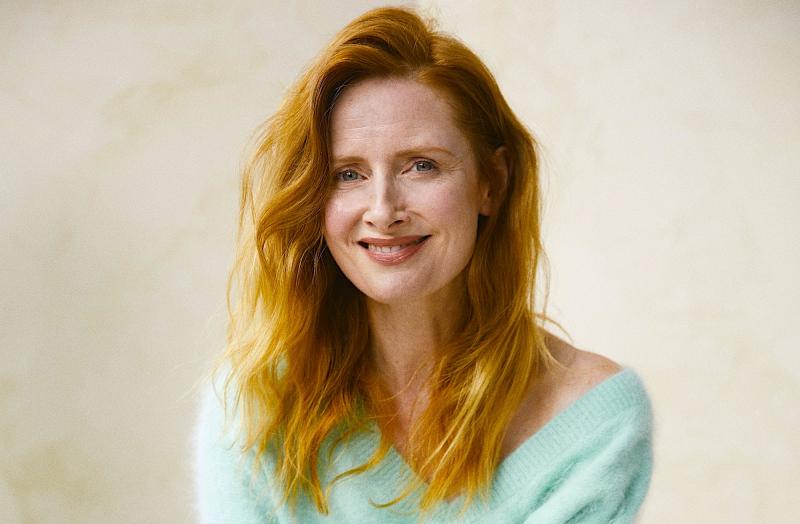
If you compiled a list of favourite TV series from the last couple of decades, you’d find that Zoë Telford has appeared in most of them. The Thick of It, Foyle’s War, Ashes to Ashes, Sherlock, Silent Witness, Unforgotten, Grantchester, Vera… they all appear on her on CV, with many more besides.
She didn’t originally plan to become an actor. “I trained as a dancer and my mum was really encouraging me to go to drama classes after school,” she recalls. “I don't know what that says about my dancing. She was really wanting me to go to acting classes and I just remember really not wanting to go.”
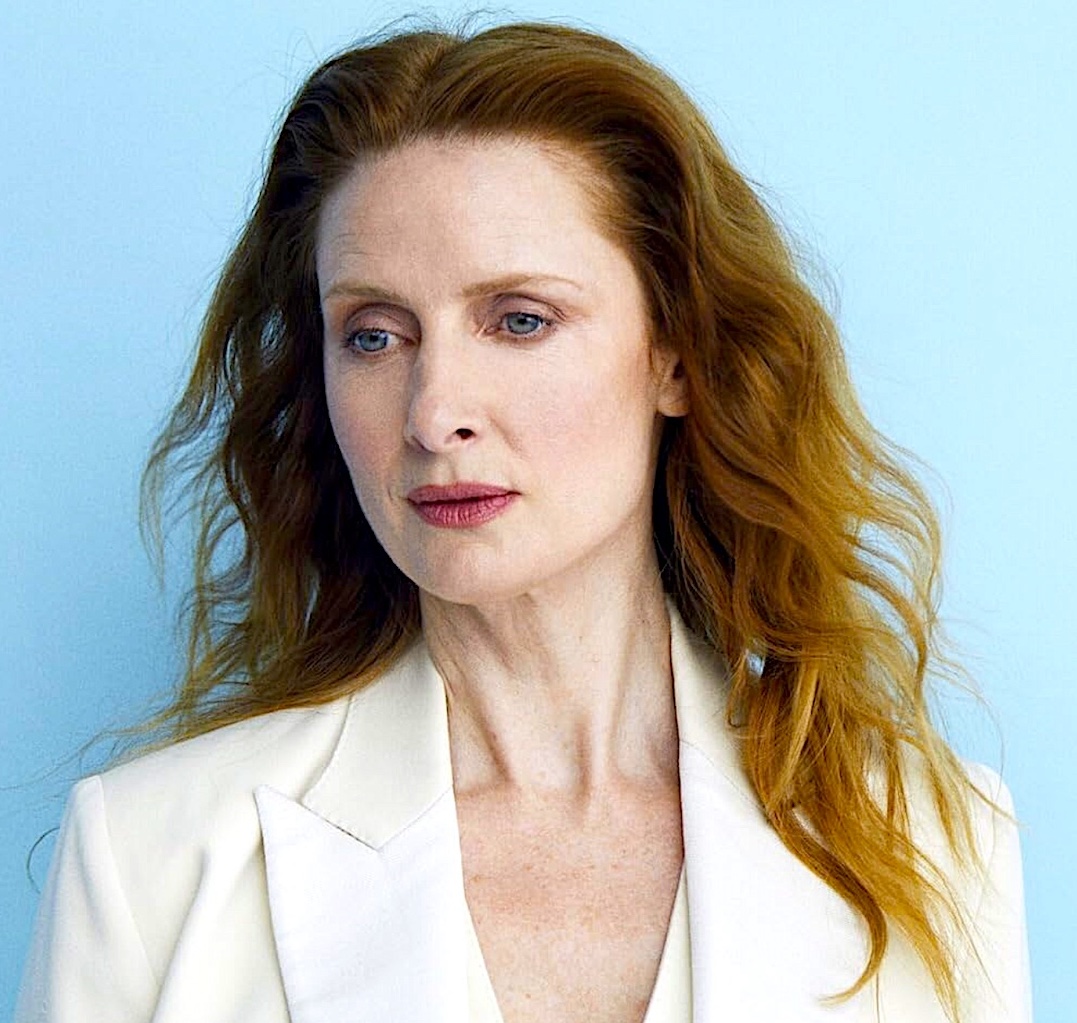 But the acting bug eventually bit her. A couple more noteworthy career moments were her portrayal of Eva Braun in Hitler: The Rise of Evil (2003), with Robert Carlyle as the Führer, and an appearance in Woody Allen’s tennis-orientated drama Match Point (2005), even though she dismisses the latter as merely “a blink-and-you-miss-me kind of thing.” Currently she’s one of the stars of the second series of ITV’s hard-hitting medical drama Malpractice, where she plays psychiatric consultant Dr Kate McAllister. It tackles a string of weighty themes, from stress, underfunding and under-manning in the NHS to blatant corruption in hospital trusts...
But the acting bug eventually bit her. A couple more noteworthy career moments were her portrayal of Eva Braun in Hitler: The Rise of Evil (2003), with Robert Carlyle as the Führer, and an appearance in Woody Allen’s tennis-orientated drama Match Point (2005), even though she dismisses the latter as merely “a blink-and-you-miss-me kind of thing.” Currently she’s one of the stars of the second series of ITV’s hard-hitting medical drama Malpractice, where she plays psychiatric consultant Dr Kate McAllister. It tackles a string of weighty themes, from stress, underfunding and under-manning in the NHS to blatant corruption in hospital trusts...
ADAM SWEETING: Malpractice raises some pretty heavy issues, doesn't it, about the status of the NHS and the way doctors behave? For instance, your character Dr Kate McAllister seems like a trustworthy person, but we learn that she’s not entirely.
ZOË TELFORD: Broadly speaking it's a thriller, and there are a number of flawed characters within that, rather self-serving characters. But then it's also set in the very real environment of the NHS, which is a woefully underfunded working environment. So the possibility for things to go wrong is pretty high.
Have you had much experience with the medical world?
Me? Not really, no. Obviously, Grace Ofori-Attah, who wrote both series of Malpractice, is a consultant psychiatrist, as is my character. So it was very easy for me to learn as much as I could really from Grace. It's a privilege just to be able to help her create some of the things that she experienced while she was working within the NHS.
That whole notion of everybody covering their own backs and being quite happy to throw their fellow professionals to the wolves is quite scary (Telford in Malpractice, pictured below).
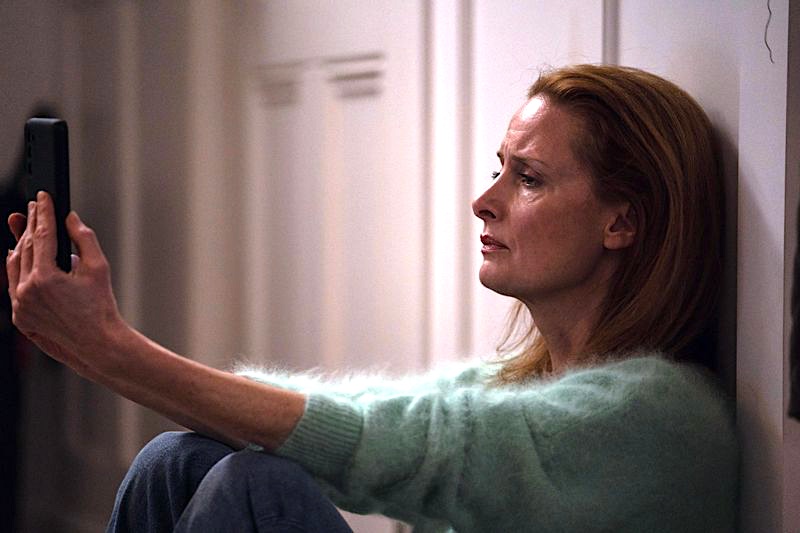 I suppose there's some kind of duality there for me, in that my character is obviously involved with another colleague, they're in a relationship of sorts. So her actions to throw him under the bus aren't necessarily to do with the working environment which she's in, but more to do with her personal feelings. I think Grace is looking at the human cost of working in an environment which is chronically underfunded. I think she’s asking the question, how much should we tolerate as a society? And how much should these individuals have to put up with in terms of the stress and the moral injury they might be sustaining because of constant feelings of inadequacy about the service they're providing for their patients?
I suppose there's some kind of duality there for me, in that my character is obviously involved with another colleague, they're in a relationship of sorts. So her actions to throw him under the bus aren't necessarily to do with the working environment which she's in, but more to do with her personal feelings. I think Grace is looking at the human cost of working in an environment which is chronically underfunded. I think she’s asking the question, how much should we tolerate as a society? And how much should these individuals have to put up with in terms of the stress and the moral injury they might be sustaining because of constant feelings of inadequacy about the service they're providing for their patients?
Obviously there's ongoing debate about the NHS, whether we should be tipping more and more money into it. And yet it just seems to generate more and more of this impenetrable bureaucracy.
Yes, I think it's obviously well documented that the NHS is in crisis. But I think what was really surprising for me to learn was how the mental health sector really is the thin end of the wedge in terms of funding. I think mental health makes up something like 20 per cent of the disease burden in this country, but it's only granted something like nine per cent of the overall funding. It’s completely baffling and infuriating to me really, I wonder what it says about us as a society that we're willing to treat our most vulnerable in this way. It was only a couple of weeks ago I think that Wes Streeting announced further cuts, so I think Grace is raising very urgent and important issues and I hope that a lot of people will watch and maybe action will be taken. That would be the dream.
With Grace, the writer, are you able to say “maybe I should do this instead of that”?
Not really because she's very on it in terms of medical procedure, you know, it's down to her. She and the producer, Chrissy Skinns, were extremely open to anything in terms of other dialogue that we might want to shift around or change. It was a real joy to be working alongside those two ladies and to feel very much that it was collaborative.
There’s a lot of stuff in the show about childbirth, and the ways that some mothers are treated by totally cynical consultants or surgeons or whatever. You’re a mother yourself, I don't know what your own experiences have been like?
As a mother, both my pregnancies and births were… I mean, I wouldn't say they were easy, but in terms of the hospital staff and the midwives and things, they were fantastic. And I didn't experience anything like that. In terms of the show, I guess my focus was very much on mental health rather than the obstetrics (in Showtrial, pictured below).
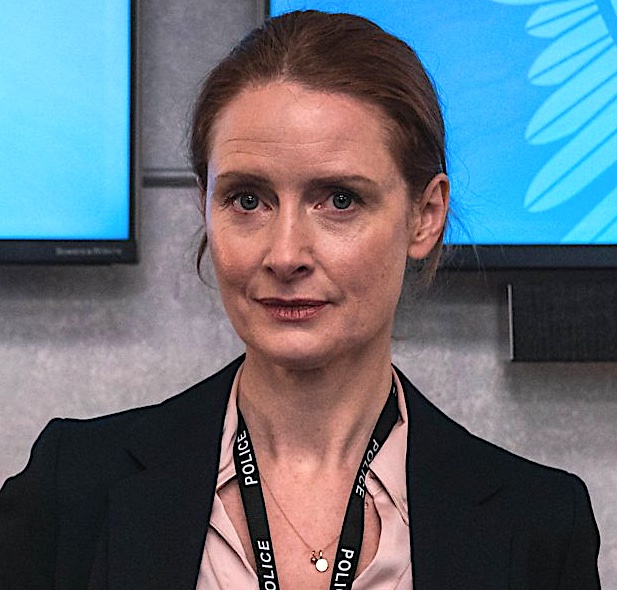 Just looking through your back catalogue, you've been in every sort of household-name TV series over the years, which is pretty amazing. What is it about you that directors love?
Just looking through your back catalogue, you've been in every sort of household-name TV series over the years, which is pretty amazing. What is it about you that directors love?
You have to ask them that! I do feel very lucky that I've worked on some good stuff lately. And I find that over time I'm sharpening my focus in terms of the sorts of things that I want to do. That's something which I'm really enjoying at the moment, being able to be a bit more particular. But yeah, I feel very fortunate.
You’ve done some quite high profile Agatha Christies, haven't you? Are they good fun to do?
Oh yeah, they're great fun. Actually, I feel like I should maybe do something like that after this because it would be nice to do something lighter. But yes, I think when you get to really dress up and put on wigs and mess about, that's great. But to be honest, it's all great fun. Even the stuff that raises important issues, from my point of view, it's still dressing up and pretending to be someone else. So I suppose it's all about communicating things that you want to get across, just in different ways. I've been very lucky that I've worked with lots of people that I really like, and I think over the last couple of years, I've worked with really good directors. I just get a real kick out of working with directors when I feel like they really understand what I'm trying to bring and understand me, and me trying to almost be a vessel for what they want to achieve.
Do you learn something, working with other actors?
I think sometimes you do, sometimes you don’t. You learn from life, actually. And I guess that's where my focus is, more on my life experience. I guess we all have a unique way of looking at the world. It's more about honouring that, you know, finding your voice and growing your own voice. I think that’s where the interesting stuff really lies.
I guess you have to immerse yourself in the environment that your character is in, so you react in the way that they would react, if that makes sense?
Yes. For example, with Kate McAllister there are systemic pressures that are weighing down on her every day, but when you're there, it's about being in the moment as much as you can. And you have to be completely open to that. I suppose it's like finding those things in me. How might I respond to that, to those kinds of pressures. How might I respond to this personal issue, and then from there you can create a character (in Red Eye, pictured below).
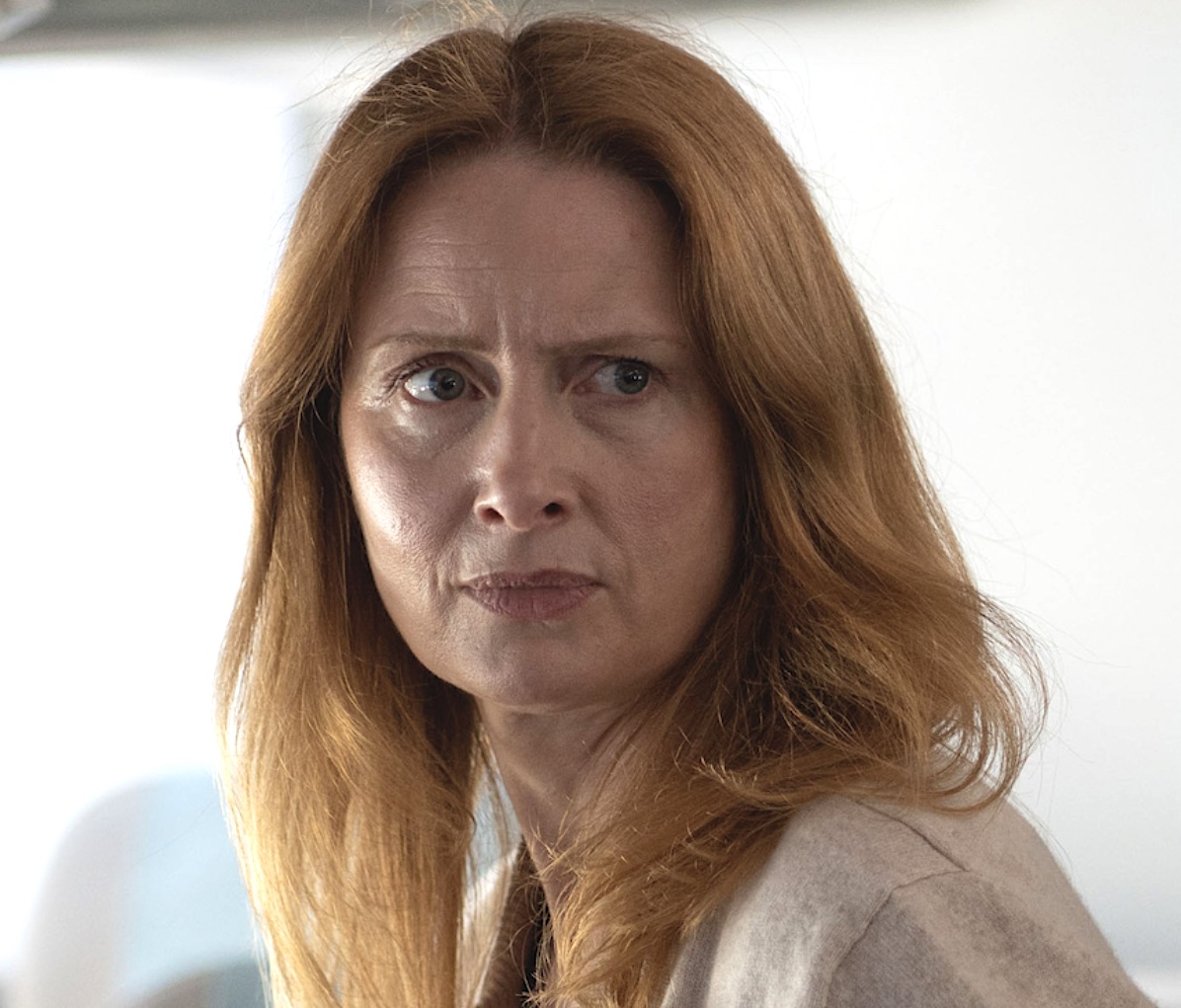 Do you have a mental list of things that you'd like to appear in and that you aim for?
Do you have a mental list of things that you'd like to appear in and that you aim for?
Yeah, I'm not going to share any of it! Yes, I do have ideas about the kinds of things that I'd like to do. But you know, life happens when you're making plans, you can have all these ideas and then something else comes up. So I think for me, it's finding the right people and working in a way… we're all aiming for the same thing, which is just good and honest representation of humankind, if you like.
What about the impact of the streamers, the Netflixes and the Amazon Primes and Apple TVs? How do you see that affecting the industry?
I mean, they produce some really terrific programs. Obviously the streamers have more money than the BBC and ITV. I hope that they're not so successful that they put other people out of business. I think it's important that we have the BBC and ITV because there's a sort of national identification with us, this country or whatever. They are important parts of our culture. I would absolutely want to support the BBC and ITV as much as possible in terms of creative content.
For a great night out, would you go to the cinema or would you go to the theatre?
I would go to the cinema every time. But it's a really tricky question because when theatre is good, there's nothing like it, there’s nothing like the live experience. But for me it's going to be cinema, just because I just personally love the intimacy of cameras. I love the fact that a camera can get up close to a person's face and see the eyelashes… I'm so fascinated by people and intimate portraits of people. And of course you see that in the theatre, but I suppose just visually, I'm very interested in how you can tell a story in that way. It feels like a very intimate relationship between me and the viewer.
You must have to learn how to act for the camera, because a tiny change of expression can make such an impact?
I suppose, like anything over time, you build up an understanding of what might work and what might not. There have certainly been times where I've been very minimal in my performance. But maybe it was too minimal. Maybe in my head, I was thinking I was in a close-up when I was actually in a wide shot. I don't know, really, that you can hang your hat on that stuff too much.
What projects do you have in the pipeline?
I'm very much playing the waiting game at the moment. I want to be sure that the next thing I do is, you know, the right thing. And I'm child rearing and waiting to see what happens.
- Malpractice is available on ITVX
Explore topics
Share this article
The future of Arts Journalism
You can stop theartsdesk.com closing!
We urgently need financing to survive. Our fundraising drive has thus far raised £49,000 but we need to reach £100,000 or we will be forced to close. Please contribute here: https://gofund.me/c3f6033d
And if you can forward this information to anyone who might assist, we’d be grateful.

Subscribe to theartsdesk.com
Thank you for continuing to read our work on theartsdesk.com. For unlimited access to every article in its entirety, including our archive of more than 15,000 pieces, we're asking for £5 per month or £40 per year. We feel it's a very good deal, and hope you do too.
To take a subscription now simply click here.
And if you're looking for that extra gift for a friend or family member, why not treat them to a theartsdesk.com gift subscription?
more TV
 theartsdesk Q&A: Suranne Jones on 'Hostage', power pants and politics
The star and producer talks about taking on the role of Prime Minister, wearing high heels and living in the public eye
theartsdesk Q&A: Suranne Jones on 'Hostage', power pants and politics
The star and producer talks about taking on the role of Prime Minister, wearing high heels and living in the public eye
 King & Conqueror, BBC One review - not many kicks in 1066
Turgid medieval drama leaves viewers in the dark
King & Conqueror, BBC One review - not many kicks in 1066
Turgid medieval drama leaves viewers in the dark
 Hostage, Netflix review - entente not-too-cordiale
Suranne Jones and Julie Delpy cross swords in confused political drama
Hostage, Netflix review - entente not-too-cordiale
Suranne Jones and Julie Delpy cross swords in confused political drama
 In Flight, Channel 4 review - drugs, thugs and Bulgarian gangsters
Katherine Kelly's flight attendant is battling a sea of troubles
In Flight, Channel 4 review - drugs, thugs and Bulgarian gangsters
Katherine Kelly's flight attendant is battling a sea of troubles
 Alien: Earth, Disney+ review - was this interstellar journey really necessary?
Noah Hawley's lavish sci-fi series brings Ridley Scott's monster back home
Alien: Earth, Disney+ review - was this interstellar journey really necessary?
Noah Hawley's lavish sci-fi series brings Ridley Scott's monster back home
 The Count of Monte Cristo, U&Drama review - silly telly for the silly season
Umpteenth incarnation of the Alexandre Dumas novel is no better than it should be
The Count of Monte Cristo, U&Drama review - silly telly for the silly season
Umpteenth incarnation of the Alexandre Dumas novel is no better than it should be
 The Narrow Road to the Deep North, BBC One review - love, death and hell on the Burma railway
Richard Flanagan's prize-winning novel becomes a gruelling TV series
The Narrow Road to the Deep North, BBC One review - love, death and hell on the Burma railway
Richard Flanagan's prize-winning novel becomes a gruelling TV series
 The Waterfront, Netflix review - fish, drugs and rock'n'roll
Kevin Williamson's Carolinas crime saga makes addictive viewing
The Waterfront, Netflix review - fish, drugs and rock'n'roll
Kevin Williamson's Carolinas crime saga makes addictive viewing
 theartsdesk Q&A: writer and actor Mark Gatiss on 'Bookish'
The multi-talented performer ponders storytelling, crime and retiring to run a bookshop
theartsdesk Q&A: writer and actor Mark Gatiss on 'Bookish'
The multi-talented performer ponders storytelling, crime and retiring to run a bookshop
 Ballard, Prime Video review - there's something rotten in the LAPD
Persuasive dramatisation of Michael Connelly's female detective
Ballard, Prime Video review - there's something rotten in the LAPD
Persuasive dramatisation of Michael Connelly's female detective
 Bookish, U&Alibi review - sleuthing and skulduggery in a bomb-battered London
Mark Gatiss's crime drama mixes period atmosphere with crafty clues
Bookish, U&Alibi review - sleuthing and skulduggery in a bomb-battered London
Mark Gatiss's crime drama mixes period atmosphere with crafty clues
 Too Much, Netflix - a romcom that's oversexed, and over here
Lena Dunham's new series presents an England it's often hard to recognise
Too Much, Netflix - a romcom that's oversexed, and over here
Lena Dunham's new series presents an England it's often hard to recognise

Add comment